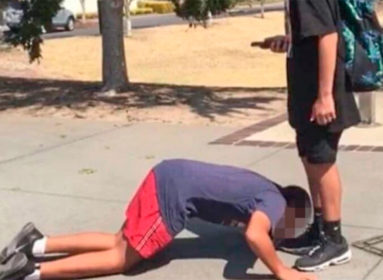
Celebrating Jewish women who changed our world
March is Women’s History Month
By Judie Jacobson
In 1987, Congress designated March as “Women’s History Month” – a month to honor the achievements of women of accomplishment and celebrate their contemporary contributions to the world we live in. Among these extraordinary women are a multitude of Jewish women whose lives continue to inspire us.
The following are but a few examples of Jewish women whose impact on history is profound. There are so many more. We pay tribute to them all.
A portion of this information was culled from Jewish Women’s Archive (www.jwa.org).
BELLA ABZUG
(1920-1998)
A tireless advocate for women’s and civil rights, “Battling Bella” was a U.S. Representative and women’s rights activist in the 1960s and 1970s. Born in the Bronx, in 1971 Abzug joined other leading Jewish feminists, such as Gloria Steinem and Betty Friedan, to found the National Women’s Political Caucus. In 1970, first campaign slogan was, “This woman’s place is in the House – the House of Representatives.” She was later appointed to co-chair the President Gerald Ford’s National Commission on the Observance of International Women’s Year and led President Jimmy Carter’s National Advisory Commission for Women.
GERTRUDE ELION
(1918-1999)
Born in New York City, Gertrude Elion was awarded the Nobel Prize in Physiology or Medicine in 1988. A biochemist and pharmacologist, among the many drugs she developed were the first chemotherapy for childhood leukemia, the immunosuppressant that made organ transplantation possible, the first effective anti-viral medication, and treatments for lupus, hepatitis, arthritis, gout, and other diseases.
RUTH BADER GINSBURG
(1933)
A native of New York City, in 1993, Ruth Bader Ginsburg was appointed a U.S. Supreme Court Justice by President Bill Clinton. Since then, she has been a strong voice for gender equality and rights of workers. She ruled on Obergefell v. Hodges, the landmark case that made same sex marriage legal in all 50 states.
EMMA GOLDMAN
(1869-1940)
A political anarchist and writer, Emma Goldman is a symbol of the fight for free speech, as she fiercely advocated for absolute freedom and justice. Born in Kaunas, Lithuania (then Kovno, Russian Empire), she emigrated to the United States in 1885 and dedicated her life to the creation of a radically new social order. For much of her life, she struggled tirelessly against widespread inequality, repression and exploitation.
REBECCA GRATZ
(1781-1869)
Born in Lancaster, Pennsylvania, Rebecca Gratz was a preeminent Jewish American educator and philanthropist who devoted her life to providing relief for Philadelphia’s underprivileged women and children and securing religious, moral and material sustenance for all of Philadelphia’s Jews. In 1801, she helped establish the Female Association for the Relief of Women and Children in Reduced Circumstances. Under Gratz’ auspices, a Hebrew Sunday School, the first of its kind in America, was started in 1838. She served both its superintendent and president.
RABBI REGINA JONAS
(1902-1944)
In 1935, Regina Jonas became the first woman to be ordained as a rabbi. There had been some women before Jonas that made significant contributions to Jewish thought, such as the Maiden of Ludmir, Asenath Barzani, and Lily Montagu, who acted in similar roles without being ordained. Prior to World War II, she put an emphasis on caring for the sick at the Jewish hospital. A victim of the Holocaust, she performed rabbinical functions at Theresienstadt before her death at Auschwitz.
EMMA LAZARUS
(1849-1886)
The author and poet Emma Lazarus is best remembered today for her words that grade the Statue of Liberty welcoming immigrants to America. One of the first successful Jewish American authors, Lazarus was part of the New York literary elite and was recognized in her day as an important American poet. In her later years, she wrote powerful poetry and essays protesting the rise of antisemitism and arguing for Russian immigrants’ rights. She called on Jews to unite and create a homeland in Palestine before the title Zionist had even been coined.
GOLDA MEIR
(1898-1978)
The fourth Prime Minister of Israel, Golda Meir (Meyerson) was born in Kiev, Ukraine and emigrated to Milwaukee, Wisconsin in 1906. During World War II, she aided Jewish war refugees and fundraised for an independent Israeli state. Meir was elected Prime Minister of Israel in 1969, after serving as Minister of Labour and Foreign Minister, she was the world’s fourth woman and Israel’s first to hold such an office. Referred to as “the best man in the government” by former Prime Minister David Ben-Gurion, she was often portrayed as the “strong-willed, straight-talking, grey-bunned grandmother of the Jewish people.” Meir resigned as prime minister in 1974, the year following the Yom Kippur War.
HANNAH SZENES
(1921-1944)
Regarded as a national heroine in Israel, the poet Hannah Szenes was one of 37 Jewish parachutists of Mandate Palestine who volunteered to parachute into Yugoslavia during World War II to rescue her fellow Hungarian Jews. She was captured, imprisoned and tortured, but refused to give up the details of her mission. She was eventually tried and executed by firing squad. The headquarters of the Zionist youth movements Israel Hatzeira, a kibbutz and several streets are named after her.
GERTRUDE WEIL
(1879-1971)
Inspired by Jewish teachings, Gertrude Weil fought tirelessly for women’s suffrage, hosted a biracial council in her home, created parks and schools for underprivileged neighborhoods, and focused her efforts on her community. In 1914, Weil, a native of North Carolina, helped found the Goldsboro Equal Suffrage Association and served as its first president. By 1917, she was an officer in the North Carolina Equal Suffrage League, becoming president in 1919.
MOLLY PICON
(1898-1982)
Born Małka Opiekun in New York City to Polish Jewish emigrants, Molly Picon’s career as an actress and entertainer began at the age of six in the Yiddish Theatre. For more than 70 years, she performed on stage and in Yiddish and Hollywood films for Jewish and non-Jewish audiences around the world. Her engaging persona and powerful performances helped keep Yiddish culture alive by bringing it out of the shtetl and into mainstream American culture.
HENRIETTA SZOLD
(1860-1945)
A leader in the Zionist movement in America, Henrietta Szold was one of six American Jewish women to found Hadassah, the Women’s Zionist Organization of America, which was dedicated to upgrading health care in Mandate Palestine. Since its founding, Hadassah has since funded hospitals, a medical school, dental facilities, x-ray clinics, infant welfare stations, soup kitchens and other services for Palestine’s Jewish and Arab inhabitants. In 1942, Szold, a native of Baltimore, Maryland, co-founded Ihud, a political party in Mandatory Palestine dedicated to a binational solution.
STELLA ADLER
(1901-1992)
As an actress and a teacher, Stella Adler
Born into a family famed for elevating Yiddish theater from vaudeville to a more nuanced art, the actress and teacher Stella Adler transformed a generation of American actors though her understanding of Method acting. Adler opened the Stella Adler Conservatory of Acting to pass on the new Method, training Warren Beatty, Robert De Niro, and Marlon Brando, among others, and writing the essential book on her craft, The Technique of Acting.
RUTH PULDA
(1955-2008)
Ruth L. Pulda of West Hartford received the 2003 Elizabeth Blackwell Award from Connecticut N.O.W. for her commitment to health care for women and the 2006 One Woman Making a Difference award from the Connecticut Women’s Education and Legal Fund. She served as counsel to the Fund, as well as chair of the state’s Permanent Commission on the Status of Women. Pulda co-founded and taught the Women’s Rights Clinic at the University of Connecticut School of Law.
NEHAMA TEC
(1931)
Born in Lublin, Poland, Holocaust scholar Nehama Tec’s interest in rescue and resistance is rooted in her own experiences as a hidden child living under an assumed Christian identity in German-occupied Europe. A professor emerita of sociology at the University of Connecticut, Tec is the author of When Light Pierced the Darkness and her memoir Dry Tears: The Story of a Lost Childhood, both of which received the Merit of Distinction Award from the Anti-Defamation League of B’nai B’rit. She is also author of the book Defiance: The Bielski Partisans, on which the 2008 film “Defiance” (2008) is based, as well as a study of women in the Holocaust, for which was awarded the 1994 International Anne Frank Special Recognition prize for that book.








 Southern New England Jewish Ledger
Southern New England Jewish Ledger






















